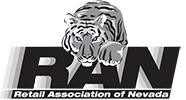The 2021 Nevada Legislative Session produced several legal amendments impacting retail employers on key issues, including paid leave, an employee’s timeline for filing certain claims against their employers, and an employer’s obligations regarding an applicant’s salary history.
SICK LEAVE FOR THE WHOLE (IMMEDIATE) FAMILY – AB 190
Beginning on October 1, 2021, employers that provide paid or unpaid sick leave must allow employees to use such leave to assist an immediate family member with a medical need.
Businesses are prohibited from applying differing standards when an employee seeks to use their leave for a family member’s care. The statute requires that such leave be allowed to the same extent and under the same conditions that apply to the employee when taking leave.
PAID LEAVE EXPANDED, INCLUDING FOR VACCINATIONS – SB 209
As many readers are aware, Nevada’s paid leave law went into effect on January 1, 2020 and requires employers with 50 or more employees to provide paid leave to employees in accordance with NRS 608.0197. SB 209, effective immediately, expands NRS 608.0197 and requires employers to allow employees to use their paid leave for any reason, including treatment or diagnosis of a health condition, preventative care, or any other personal needs related to the health of the employee.
SB 209 also requires employers to provide paid leave to employees for the purpose of receiving a COVID-19 vaccination. If the employee receives a one-dose vaccination, two consecutive hours of paid leave must be provided. If the employee receives a two-dose vaccination, two separate blocks of two hours each must be provided.
Employees must provide at least 12 hours of notice to the employer before using such paid leave. Businesses should be prepared quickly adjust work schedules within that time frame, as an employee cannot be required to find a replacement worker as a condition of using the paid leave.
STATE AND FEDERAL FILING DEADLINES – AB 222
AB 222, effective immediately, brings consistency to state and federal laws regarding an employee’s deadlines to assert claims for unlawful discrimination against their employer. Under existing law, an employee subjected to an unfair employment practice under Nevada state law (NRS 613.420) must file a lawsuit within 180 days of the act constituting the unfair employment practice occurred, or more than 90 days after the Nevada Equal Rights Commission (“NERC”) authorizes the employee to file a lawsuit, whichever is later. These filing periods are tolled during NERC’s investigation of the claim.
AB 222 clarifies that these requirements apply equally to unfair employment practices under federal law (Title VII of the Civil Rights Act of 1964 and 42 U.S.C. §§ 2000e et seq.) and authorizations to file a lawsuit issued by the federal Equal Employment Opportunity Commission.
THE SALARY HISTORY QUESTION IS HISTORY – SB 293
Beginning on October 1, 2021, employers will be prohibited from seeking a job applicant’s wage or salary history. Further, a prospective employer is prohibited from relying on an applicant’s wage or salary history in deciding whether to hire the applicant or setting compensation.
Employers should rely on external research regarding market rates, or simply ask the applicant to provide their salary “expectation” for the position, which is explicitly permitted by the statute.
SB 293 requires employers, following completion of an external applicant’s interview, to affirmatively provide the applicant the wage, salary range, or rate for the position. Further, internal applicants seeking a promotion or transfer must be provided the wage, salary range, or rate for a position if the employee has (1) applied for the promotion or transfer, (2) completed an interview for the position or been offered the position; and (3) requested the wage, salary range, or rate for the position.
While SB 293 does not take effect until October 1, 2021, employers should be prepared to revise recruitment materials (including written questionnaires and interview outlines) accordingly. Likewise, when seeking candidates for any position, businesses should ensure wage information is readily available for external and internal applicants when required.
The provisions of SB 293 regarding employers apply equally to employment staffing agencies. Thus, a business that relies on a staffing agency should ensure the agency complies with these guidelines, to avoid inadvertently learning of any applicant’s salary history.
As the legal landscape for Nevada’s employers rapidly evolves, it is more important than ever that retail employers keep their leave policies and hiring practices (both external and internal) up to date.
